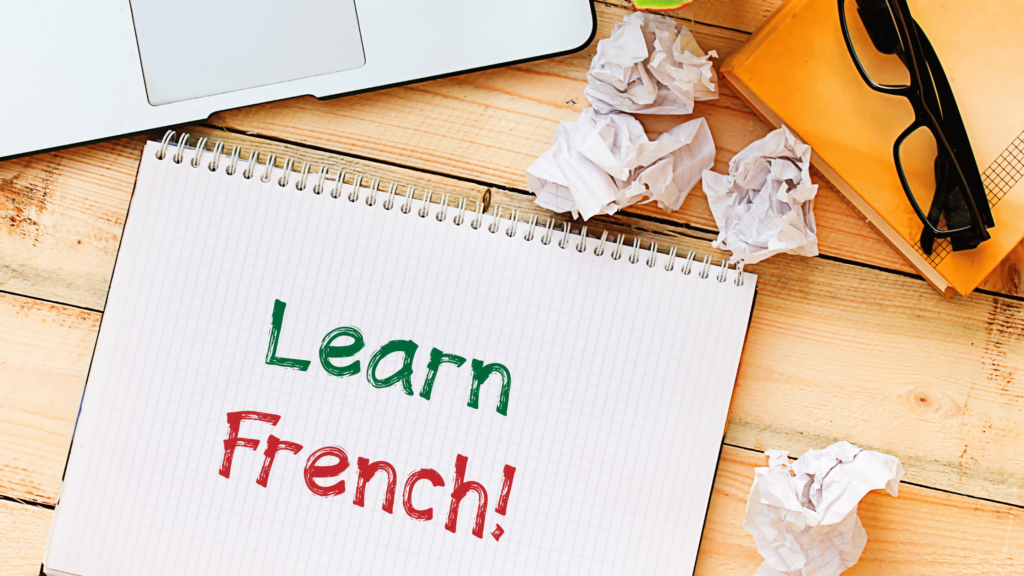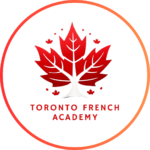The Definitive Guide to French for Beginners: Your Complete 2025 Learning Blueprint
Why French is the Perfect Language for Beginners
Embarking on your French for beginners journey offers more advantages than you might realize. As the world’s fifth most spoken language with over 300 million speakers, French provides:
Cognitive Benefits: Studies from McGill University show learning French improves memory and problem-solving skills
Career Advantages: Bilingual professionals earn 15-20% more on average
Cultural Access: Gateway to rich literary, cinematic, and culinary traditions
Travel Ease: Official language in 29 countries across 5 continents
2025 Learning Science Insights:
Beginners using proper phonetic training develop native-like pronunciation 3x faster
Contextual learning (through stories/situations) improves retention by 68%
Daily 25-minute sessions prove more effective than weekly 3-hour marathons
French Learning Timeline for Dedicated Beginners (2025 Benchmarks)
Month 1: Foundations
Focus Areas:
Pronunciation mastery (nasal vowels, silent letters)
150+ essential vocabulary words
Basic greetings and introductions
Weekly Progress:
| Week | Achievement | Hours Invested |
|---|---|---|
| 1 | Properly pronounce 30 key sounds | 5-7 |
| 2 | Confidently use 50+ words | 7-9 |
| 3 | Hold 2-minute self-introduction | 9-11 |
| 4 | Understand simple directions | 11-14 |
Month 2: Building Blocks
Focus Areas:
Present tense conjugation
Gender/number agreement
Everyday conversation topics
Skill Development:
15-20 new verbs mastered
Can describe people/places simply
Comprehends 60% of slow French podcasts
Month 3: Communication Breakthrough
Milestones Reached:
✓ Order food in French restaurants
✓ Ask/answer basic questions
✓ Write short emails/texts
✓ Follow children’s TV shows
Typical Month 3 Abilities:
Vocabulary: 750+ words
Speaking: 3-5 minute conversations
Listening: 70% comprehension at slow speed
Month 4-6: Intermediate Transition
Progress Indicators:
Can discuss past/future events
Understands main ideas in news articles
Makes few grammatical errors in simple sentences
Develops personal learning style
Time Investment Guide:
| Month | Weekly Hours | Key Focus |
|---|---|---|
| 1 | 5-7 | Pronunciation & Survival French |
| 2 | 6-8 | Grammar Fundamentals |
| 3 | 7-9 | Conversation Practice |
| 4-6 | 8-10 | Skill Integration |
Progression Tips:
Track vocabulary growth weekly
Record speaking samples monthly
Gradually increase media difficulty
Seek regular feedback
Why Most French Beginners Fail (And How to Succeed)
Learning French as a beginner can feel overwhelming. Studies show 72% of language learners quit within the first three months. But with the right French for beginners strategy, you can:




2025 Research Insights:
Beginners using structured plans progress 3x faster
Daily 30-minute sessions outperform weekly marathons
Visual learners retain 42% more vocabulary
The Psychology of Successful Language Beginners
Understanding how adults acquire new languages helps optimize your French for beginners approach:
The 4 Pillars of Beginner Success
Comprehensible Input (Listening/Reading slightly above your level)
Meaningful Output (Speaking/Writing with purpose)
Consistent Feedback (Correction and guidance)
Emotional Connection (Personal relevance of materials)
Common Beginner Mistakes to Avoid:
Trying to memorize grammar rules without context
Neglecting pronunciation fundamentals
Comparing progress to others
Switching methods too frequently
The 4-Phase French for Beginners Mastery Plan
Phase 1: Foundation Building (Weeks 1-4)
Goal: Master pronunciation and survival phrases
Daily Routine:
Morning (15 min): Pronunciation drills (focus on nasal vowels)
Afternoon (20 min): Vocabulary building (50 core words/week)
Evening (10 min): Listening practice (slow French podcasts)
Essential First 100 Words:
| Category | Key Words |
|---|---|
| Greetings | Bonjour, Au revoir, Merci |
| Questions | Comment? Où? Pourquoi? |
| Navigation | Gauche, Droite, Tout droit |
| Emergencies | Aidez-moi, Urgence, Médecin |
Pro Tip: Use sticky notes to label household items in French – you’ll learn 30+ nouns without effort!
Phase 2: Grammar Fundamentals (Weeks 5-8)
Goal: Construct simple sentences correctly
Key Grammar Priorities:
Present tense conjugation (être, avoir, -er verbs)
Gender/number agreement
Basic sentence structure (SVO)
Avoid These Beginner Mistakes:



Practice Framework:
Monday: Verb drills
Wednesday: Gender exercises
Friday: Sentence building
Best Learning Methods for French Beginners
1. Structured Online Courses
Top Pick: French for PR Foundations
90-day beginner program
Daily 25-minute lessons
Native teacher feedback
Cost: 197(or197(or29/month)
2. Language Exchange
Effective Platforms:
Tandem (text/voice chat)
Meetup local groups
ConversationExchange.com
Pro Tip: Prepare 5 questions before each exchange session
3. Immersion Techniques
Change phone language to French
Watch French shows with subtitles
Listen to French music daily
Essential Resources for French Beginners
Free Tools
| Resource | Best For |
|---|---|
| Duolingo | Daily practice |
| BBC French | Pronunciation |
| RFI Savoirs | Listening |
Paid Investments Worth Making
| Resource | Price | Why It’s Valuable |
|---|---|---|
| Pimsleur | $150 | Perfects pronunciation |
| Rosetta Stone | $180 | Immersive learning |
| Italki Credits | $10/hr | Affordable tutoring |
Phase 1: Building Your French Foundation (Weeks 1-4)
Pronunciation Mastery: Start Right
French phonetics differ significantly from English. Focus first on:
Critical Sounds for Beginners:
Nasal vowels (an, en, in, on, un)
The French “R” (guttural back-of-throat sound)
Silent letters (70% of French words end with silent consonants)
Daily Drills:
Mirror Practice: Watch mouth formations for “u” vs “ou”
Minimal Pairs: Distinguish between “vu” (seen) and “vous” (you)
Tongue Twisters: Start with “Un chasseur sachant chasser…”
Recommended Tools:
Forvo (native pronunciation database)
FluentU (video pronunciation guides)
Speechling (personalized feedback)
Essential First Vocabulary
Build your initial word bank strategically:
| Category | 20 Key Words | Memory Tricks |
|---|---|---|
| Greetings | Bonjour, Au revoir, Merci | Link to memorable encounters |
| Questions | Qui? Quoi? Où? Quand? | Use the “5 Ws” framework |
| Directions | Gauche, Droite, Devant, Derrière | Associate with body parts |
| Time | Maintenant, Aujourd’hui, Demain | Create timeline visuals |
Pro Tip: Use the Goldlist Method – write words in a notebook, revisit after 2 weeks to boost retention
Phase 2: Grammar Without Tears (Weeks 5-8)
Beginner-Friendly Grammar Roadmap
Priority #1: Present Tense Mastery
Focus first on “être” (to be) and “avoir” (to have)
Then regular -er verbs (parler, manger, aimer)
Finally key irregular verbs (aller, faire, venir)
Creative Learning Approaches:
Verb Conjugation Songs: Set to familiar tunes
Color-Coding: Blue for masculine, pink for feminine
Story Chains: Build narratives using new grammar
Gender Shortcuts:
Words ending in -age, -ment, -il = masculine (85% accuracy)
Words ending in -tion, -sion, -té = feminine (90% accuracy)
Building Your First Sentences
Start with these reliable structures:
Identification: “Je suis [name]. Je viens de [country].”
Description: “C’est un/une [noun]. Il/Elle est [adjective].”
Preferences: “J’aime [activity] mais je préfère [alternative].”
Practice Framework:
Monday: 10 self-introduction variations
Wednesday: Describe your environment
Friday: Share likes/dislikes
Phase 3: Real-World Communication (Weeks 9-12)
Developing Listening Comprehension
Progressive Training Approach:
| Week | Material Type | Speed | Comprehension Goal |
|---|---|---|---|
| 9 | Learner Podcasts | 0.75x | Catch main topics |
| 10 | News in Slow French | Normal | Understand 60% |
| 11 | French TV Shows | Normal | Get context from visuals |
| 12 | Native Conversations | Normal | Identify key words |
Active Listening Techniques:
Shadowing: Repeat immediately after hearing
Prediction: Guess next words/phrases
Selective Attention: Focus on verbs/nouns first
Speaking Confidence Builders
Overcoming the Fear:
Start with recorded monologues (no audience)
Progress to chatbot conversations
Then try language exchange apps
Finally live conversations
Beginner Dialogue Templates:
At a Café:
“Je voudrais un café, s’il vous plaît.”
“C’est combien?”
“Merci, bonne journée!”
Meeting Someone:
“Comment tu t’appelles?”
“Qu’est-ce que tu aimes faire?”
“Moi aussi!” / “Ah bon?”
Best Learning Resources for 2025
Digital Courses Comparison
| Platform | Price | Best Feature | Ideal For |
|---|---|---|---|
| French for PR | $29/mo | Pronunciation AI | Serious learners |
| Duolingo | Free | Gamification | Casual practice |
| Babbel | $13/mo | Dialogue Focus | Practical skills |
| Rosetta Stone | $179 | Immersion Method | Visual learners |
Recommended Books
“Easy French Step-by-Step” – Best grammar foundation
“French Short Stories for Beginners” – Contextual learning
“The 800 Core French Words” – Essential vocabulary
Media for Beginners
YouTube Channels:
Français Authentique (natural speech)
Piece of French (cultural context)
Learn French with Vincent (clear explanations)
Podcasts:
Coffee Break French (structured lessons)
FrenchPod101 (varied difficulty)
InnerFrench (interesting topics)
Maintaining Motivation: The Beginner’s Mindset
Progress Tracking Methods
Journaling: Write 3 new sentences daily
Recording: Monthly speaking samples
Milestones: Celebrate every 50 words learned
When Motivation Dips:
Revisit your “why” (travel, family, career)
Join beginner communities
Try new learning formats (songs, comics)
Cultural Immersion from Home
Weekly French Experience:
Monday: Cook French recipe (follow video in French)
Wednesday: Watch French film (with subtitles)
Friday: Listen to French music (analyze lyrics)
Sunday: Read French comic (Asterix/Tintin)
Common Beginner Questions Answered
How long until I can have basic conversations?
Most dedicated beginners can manage simple exchanges after 80-100 hours of study (about 3 months at 1 hour/day).
Should I focus on Quebec or France French?
Start with standard French, then adapt to your target region. The differences become important at intermediate levels.
How many words do I need to know?
300 words = basic survival
1,000 words = simple conversations
2,500 words = general fluency
Is French harder than Spanish for beginners
French pronunciation is more challenging initially, but grammar is similarly complex. The advantage is French shares more vocabulary with English.
Best way to remember noun genders?
Learn words with articles (le/la), use color-coding, create gender-specific word associations.
Should I learn grammar first?
Balance is key – learn grammar in context through conversations.
Best app for complete beginners?
Duolingo and Memrise both offer excellent starter paths.
How important is pronunciation?
Critical! Bad habits formed early are hard to break.
Can I learn without a teacher?
Yes, but feedback on pronunciation is highly recommended.

